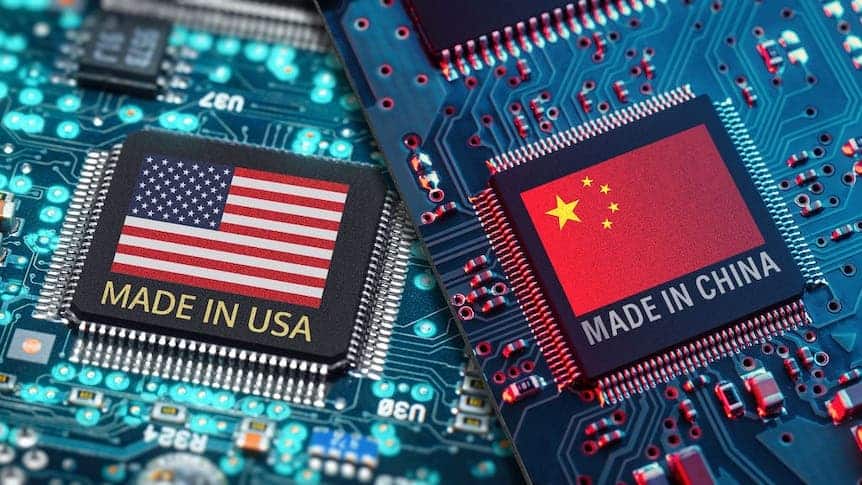Metrics like economic success, technological adoption, and real-world impact become more telling than raw measures in this booming open market, which is a result of the U.S.’s dedication to an open society and the free interchange of ideas. These indicators highlight the U.S.’s propensity for transforming research into significant, scalable inventions in the context of the strategic smart tech competition with China.

US-China smart tech competition (Photo: Gizchina)
According to a survey published earlier this year about smart tech competition, China has a “stunning lead” in key technology. Additionally, this assertion had already been made.
But are these assertions supported by fact? It’s not immediately obvious that the United States is falling behind in smart tech competition when examining the global influence and reach of American businesses like Amazon, Apple, OpenAI, Boeing, Moderna, Microsoft, and Google.
But the problem is defining precisely how to quantify a ” smart tech competition” or “strategic competition.” Typically, contests have scores, victors, and losers. But how does one maintain track of results in a tech competition? Is it the quantity of patents, academic articles, renowned universities, or multibillion-dollar businesses? Or is the proper scoring system a more intricate concoction of these and other factors?
The rivalry between the United States and China is multifaceted, covering aspects of technology, the economy, the military, and politics. We need to change our attention from measures (raw numerical data) to metrics, which provide insightful interpretations of these statistics, in order to appropriately assess the position of the United States in this smart tech competition. This turning point highlights the differences between a state-run economy and a free-market economy.
It is tempting to depend on traditional indicators of scientific advancement, like scientific citations or patents, because they are objective and quantitative, to identify who is winning smart tech competition. However, doing so runs the risk of disregarding other elements that could have a significant impact on how a technology battle between the US and China plays out.
To capture variance in quality, context, implementation, and impact, these metrics call for more complex measurement, interpretation, and analysis. The U.S. will certainly win hollow successes but fall short of advancing its interests in national security if it only concentrates on trying to catch up to China on specific technological advancement metrics amidst smart tech competition with China.
READ ALSO: Airline Hubs In US No Longer Have Flights From The East Coast To China, Why?






































